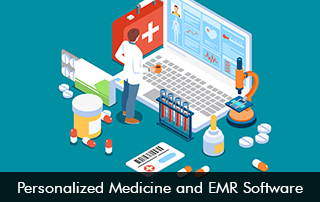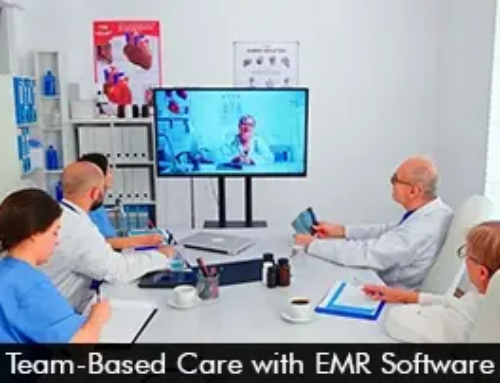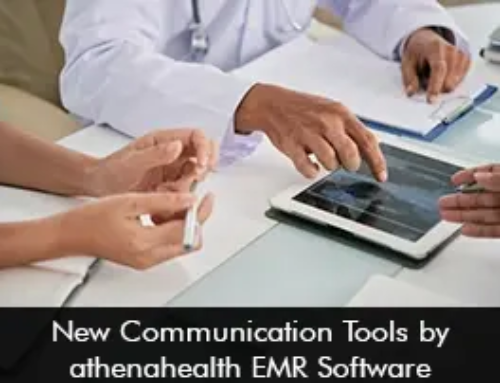Personalized medicine relies on Electronic Medical Records (EMR) Software technology. Clinicians can provide patient-centered care as they are empowered with comprehensive patient data in the EHR Software. They don’t have to waste time asking the patient or contacting previous medical specialists as the software system has all updated and proper medical histories including past treatments, medications, relevant tests, and allergies. Personalized healthcare can enhance patient outcomes and even lower overall costs as test duplications and the margin for any errors are reduced.
What is Personalized Medicine?
Precision medicine, another name for personalized medicine, is a branch of medicine that customizes medical care to each patient’s unique needs. It involves making decisions about disease prevention, diagnosis, and treatment based on lifestyle, environmental, and genetic data.
Personalized medicine includes:
- A patient’s genetic profile
- Developing targeted and personalized therapies and treatment plans.
- Classifying biological makers to know a patient’s response to a particular treatment.
- Seamless patient data integration facilitated by EMR Software technology.
- Preventive measures.
Taking into consideration the unique aspects of every patient is the main motto of personalized care. This approach is becoming popular in the United States healthcare as it leads to more efficient and effective care delivery.
How can EHR Software help with Personalized Medicine?
The contribution of Electronic Health Records Software is critical in offering personalized medicine to patients. It has robust features and a sophisticated design to facilitate data collection, integration, and transfer which empowers clinicians to make way for precision medicine.
Comprehensive Data Collection with EHR Software System
Large volumes of patient data, such as genetic information, imaging studies, test results, and medical histories, can be gathered and stored by EMR systems. Personalized medicine depends on this central patient data repository, which gives medical professionals access to all the information they need to customize patient care.
Smooth Integration with Genetic Data
Genetic test results and genomic databases can be integrated with electronic health records software systems. Through this connection, providers can easily add genetic data to a patient’s medical file. This can enable more individualized treatment choices based on pharmacogenomics and genetic predispositions.
Population Health Management
EMR systems can collect and analyze data from huge patient groups to detect trends and patterns. This can assist healthcare practitioners in understanding how distinct genetic and environmental factors influence health outcomes. This allows for more effective population-level customized medicine methods.
Benefits of Personalized Medicine
Healthcare is shifting toward personalized medicine as it offers many advantages to communities, providers, and even research and development. With personalized medicine, the following benefits can be reaped:
- Effective and tailored treatment plans for individual patients.
- Minimum side effects help to improve patient safety levels.
- Earlier diagnosis and therefore treatment.
- Optimized drug therapy.
- Reduction in healthcare costs.
- Enhanced patient outcomes.
- Personalized medicine drives innovation in drug development and opens opportunities for medical research.
- Effective use of resource allocation.
- Personalized medicine can help with the treatment and detection of melanoma, and increase prognosis in cancer patients.
To advance the field of precision medicine forward-thinking healthcare providers have implemented EHR Software technology. The system provides a complete infrastructure to tap the value of patient data.








